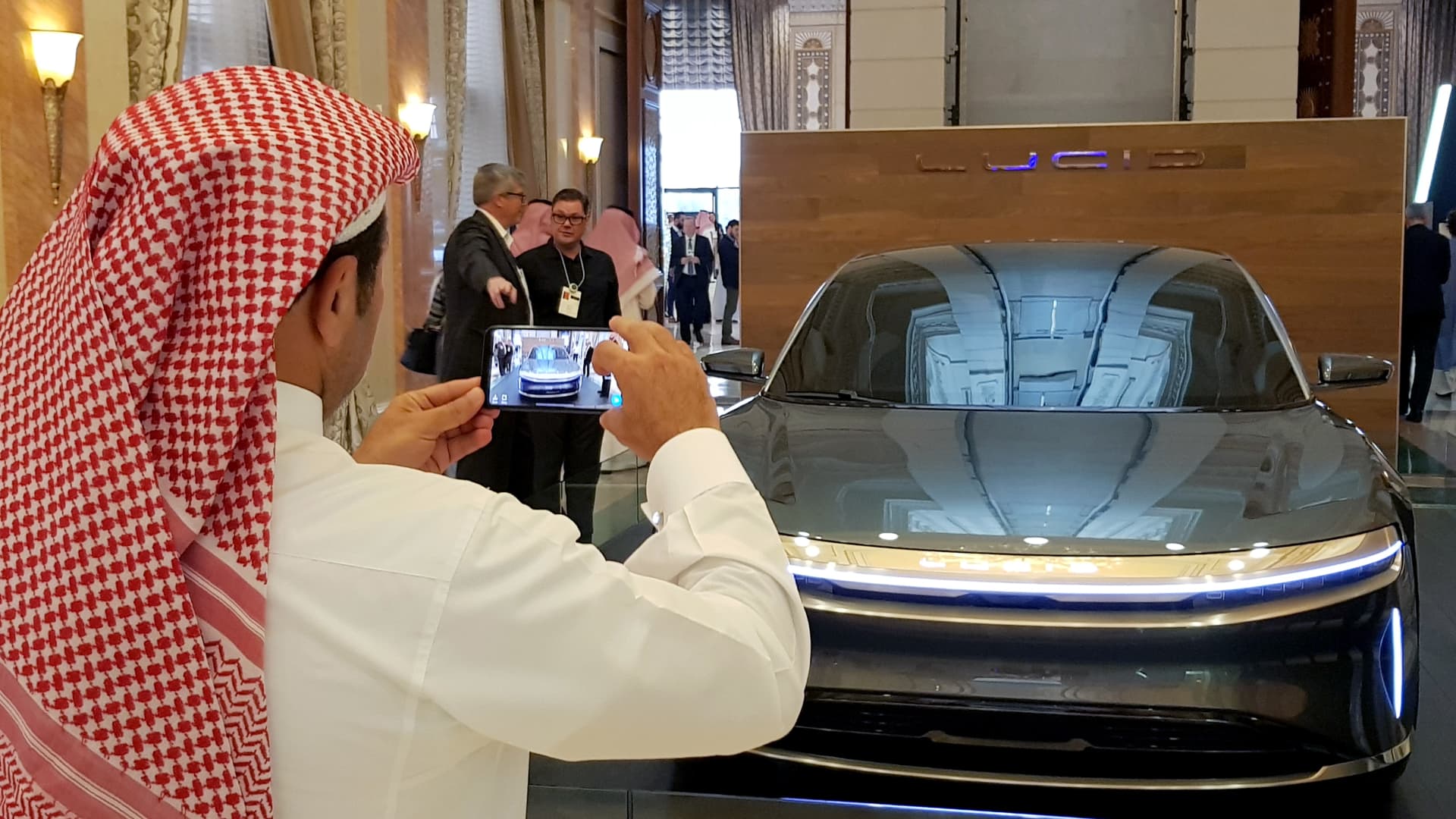U.S. electric vehicle manufacturer Lucid Group has announced plans to establish its first international factory in Saudi Arabia. This move comes as a surprise to some investors, considering BlackRock’s focus on investing in a low-carbon future. However, BlackRock CEO Larry Fink has justified this decision by praising the Saudi Aramco CEO’s understanding of the global energy industry and the shift towards a low carbon economy.
The Middle East, traditionally known for its oil and gas reserves, is now turning its attention to a more sustainable future that could be dominated by electric vehicles. Saudi Arabia itself is developing its own brand of electric vehicles under the Ceer name. The country also owns a majority stake in luxury EV maker Lucid Motors. Moreover, electric vehicle deliveries in Israel have surged by over 210% in the first half of this year compared to the same period last year, while Bahrain has partnered with American manufacturing corporation Gauss Auto to establish an electric vehicle manufacturing plant.
Tammy Klein, the chairperson of the Electric Vehicle Council, states that there is a growing recognition among Middle Eastern countries that action needs to be taken on climate change. She also emphasizes that government-industry partnerships are common worldwide and make sense in terms of promoting electrification and other fuel types.
Einride, an autonomous electric trucking company based in Sweden, has recently partnered with the UAE Ministry of Energy and Infrastructure to develop sustainable shipping in the Middle East. Their Falcon Rise project aims to create a freight mobility grid spanning 300 miles across Abu Dhabi, Dubai, and Sharjah, consisting of 2,000 electric trucks, 200 autonomous trucks, and eight charging stations.
Klein views Einride’s approach as interesting and well-suited to the UAE due to the country’s contained geography. Unlike larger countries such as the United States, the UAE’s compact size simplifies the process of electrification.
Both the UAE and Saudi Arabia are investing in EV infrastructure. The Saudi Electric Vehicle Charging Infrastructure Development Initiative (SEVCIDI) aims to install 50,000 domestic charging stations in Saudi Arabia by 2025. Major automotive players such as GM and Ford are also targeting the Middle East market, while China is making its presence felt through investments and partnerships with EV manufacturers.
Despite the growing shift towards electric vehicles, oil is expected to remain crucial in the foreseeable future. OPEC predicts that global oil demand will reach 110 million barrels per day in the next 20 years, driving up overall energy demand by 23%. Furthermore, the transition to EVs poses significant challenges, particularly in creating new supply chains for batteries and essential minerals and metals.
Nevertheless, the partnership between Einride and the UAE, combined with the general enthusiasm for electric vehicles, could inspire other countries in the region to take similar action and transition their infrastructure to support EVs and combat climate change.
Denial of responsibility! VigourTimes is an automatic aggregator of Global media. In each content, the hyperlink to the primary source is specified. All trademarks belong to their rightful owners, and all materials to their authors. For any complaint, please reach us at – [email protected]. We will take necessary action within 24 hours.


